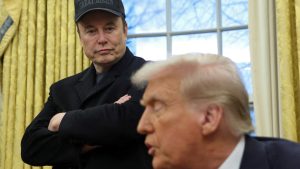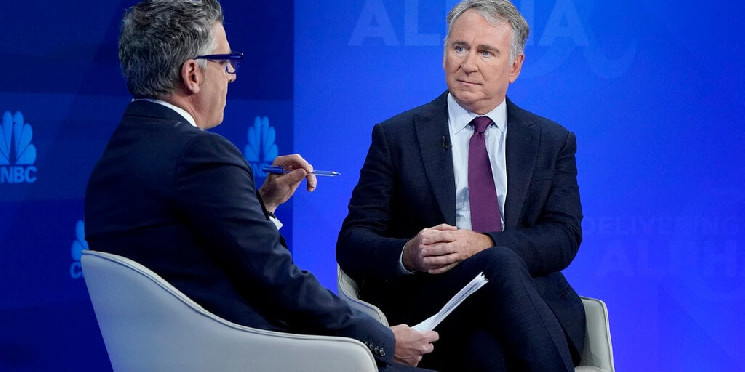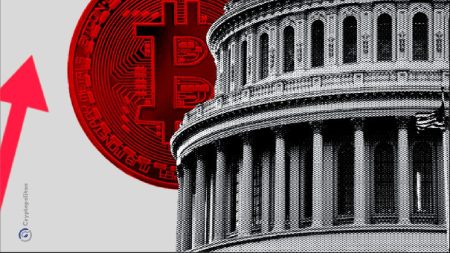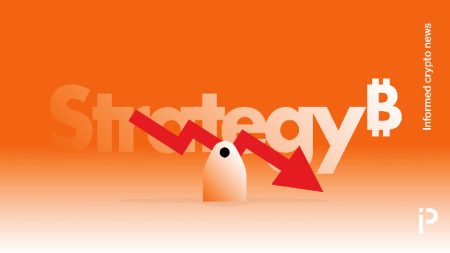Ken Griffin and Citadel Securities Embrace Crypto: A Shift in Strategy
For years, Ken Griffin, the billionaire founder of Citadel Securities, has been a vocal skeptic of cryptocurrency. In the past, he famously referred to crypto as a “jihadist call” against the U.S. dollar, expressing doubts about its fundamental value. However, in a surprising turn of events, Griffin has softened his stance, and Citadel Securities is now making a significant move into the crypto space. This shift marks a pivotal moment for both Citadel and the broader cryptocurrency industry.
A New Chapter: Citadel Securities Enters Crypto Trading
Citadel Securities, a global market-making giant, has announced plans to dive into crypto trading after years of resistance. The firm, which processes $503 billion in daily trades and accounts for nearly 35% of all U.S. stock trading volume, is reportedly preparing to act as a market maker on major crypto exchanges such as Coinbase, Binance, and Crypto.com, according to Bloomberg sources. This move is part of a broader strategy to expand into the digital asset class, signaling a dramatic shift in Griffin’s perspective on crypto.
The decision was first hinted at by Griffin during the 2025 UBS Financial Services Conference on February 11. While Griffin has not entirely abandoned his skepticism—he recently questioned crypto’s ability to solve real economic problems—the firm is clearly recognizing the growing importance of digital assets in financial markets. To facilitate its crypto operations, Citadel Securities is also seeking to establish teams outside the U.S., further underscoring its commitment to this new venture.
Ken Griffin’s Evolving Stance on Cryptocurrency
Despite his past criticisms, Griffin has welcomed recent developments in crypto regulation and policy. He has praised former President Trump’s pro-crypto orders and the appointment of Hester Peirce to lead a crypto task force. Griffin has criticized the previous Biden administration’s "regulation by enforcement" approach, calling it "evil." However, he believes that allowing top-tier financial institutions like Citadel to participate in the crypto market could lead to greater transparency and integrity in the space.
Griffin has also emphasized the importance of institutional participation in cleaning up and legitimizing cryptocurrency markets. "We’ve seen time and time again in markets where your tier-one players are allowed to participate are actually markets that clean themselves up," he said in a recent interview with the South Florida Business Journal. This statement reflects his belief that the involvement of established financial firms like Citadel could help crypto shed its reputation for volatility and instability.
The Significance of Citadel’s Entry into the Crypto Market
Citadel Securities’ foray into crypto trading is a watershed moment for the industry. The firm’s decision to enter the space comes several years after competitors such as Jane Street and Jump Trading established their own digital asset operations in 2017 and 2021, respectively. Citadel’s involvement is particularly notable given its size and influence in traditional financial markets. The firm’s entry is expected to accelerate institutional adoption of crypto and further bridge the gap between traditional finance and digital assets.
In 2023, Citadel Securities collaborated with Charles Schwab and Fidelity to launch EDX Markets, an institutional-only crypto exchange designed to mirror traditional financial market structures. This initiative highlights Citadel’s growing interest in the crypto space and its efforts to create infrastructure that appeals to institutional investors. By leveraging its expertise in market-making and high-frequency trading, Citadel aims to bring greater liquidity and efficiency to cryptocurrency markets.
Partnerships and Regulatoryomentum Drive Citadel’s Crypto Push
Citadel’s move into crypto is also driven by the evolving regulatory landscape. The appointment of Hester Peirce, a well-known crypto advocate, to lead a crypto task force has been a positive development for the industry. Griffin has publicly praised these pro-crypto measures, suggesting that a more supportive regulatory environment is encouraging firms like Citadel to explore digital assets. At the same time, the firm’s collaboration with major financial institutions such as Fidelity and Charles Schwab underscores the growing momentum behind institutional crypto adoption.
Griffin’s comments also highlight the tension between his skepticism of crypto’s inherent value and his recognition of its potential as a financial instrument. While he has questioned whether crypto solves real-world problems, he acknowledges the importance of allowing top-tier financial institutions to participate in the market. This nuanced perspective reflects the broader debate about the role of cryptocurrency in the global economy.
The Future of Crypto and Traditional Finance
As Citadel Securities takes its first steps into the crypto market, the industry is bracing for the potential impact of its involvement. The firm’s entry could bring much-needed stability and credibility to the space, attracting more institutional investors and accelerating the adoption of digital assets. At the same time, Griffin’s continued skepticism serves as a reminder of the challenges crypto still faces in proving its value to traditional financial leaders.
For now, Citadel Securities’ decision to embrace crypto trading marks a significant turning point for both the firm and the broader financial industry. Whether this move will usher in a new era of growth for crypto or simply expand Citadel’s influence in traditional markets remains to be seen. One thing is certain, however: Ken















